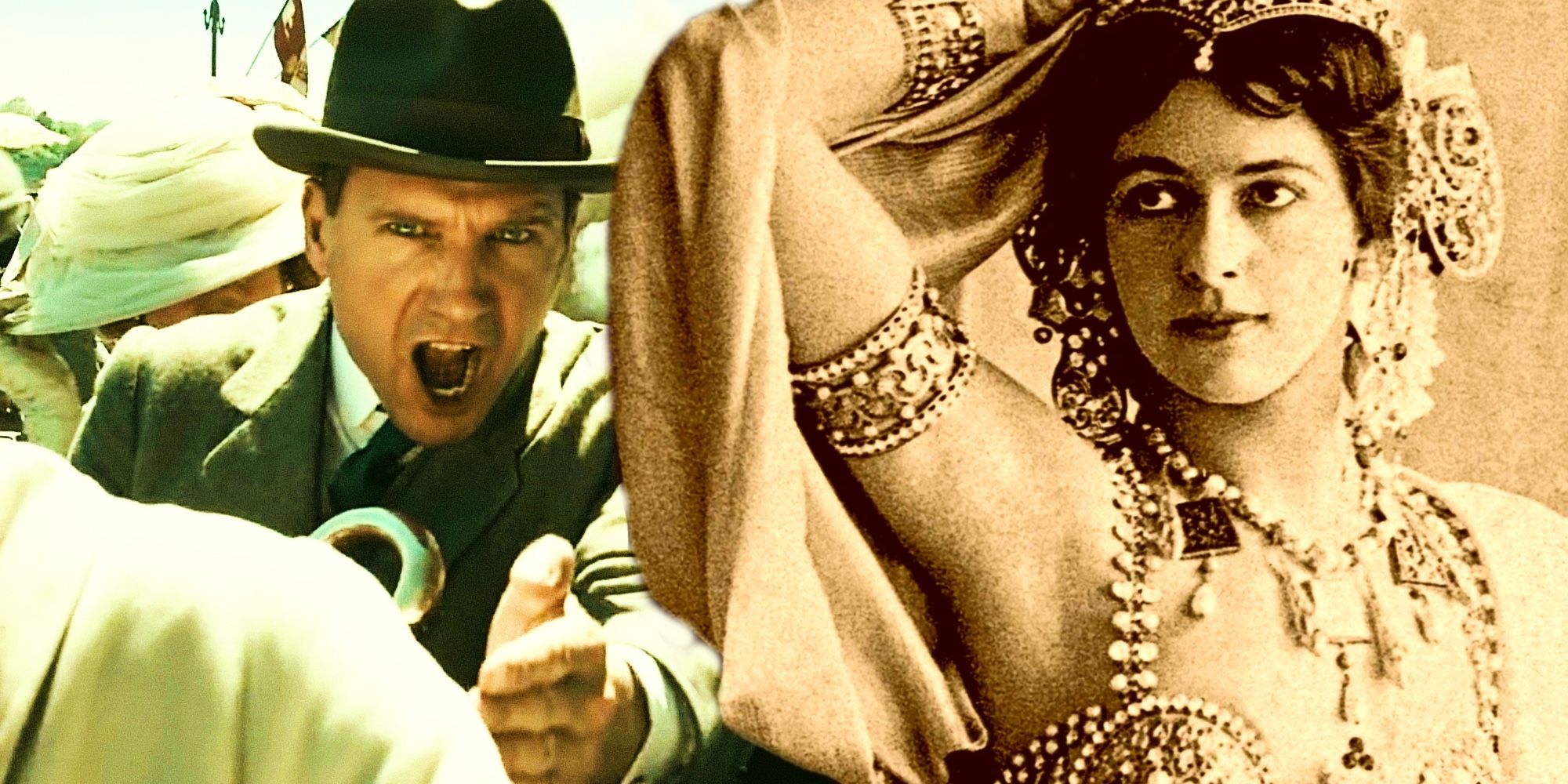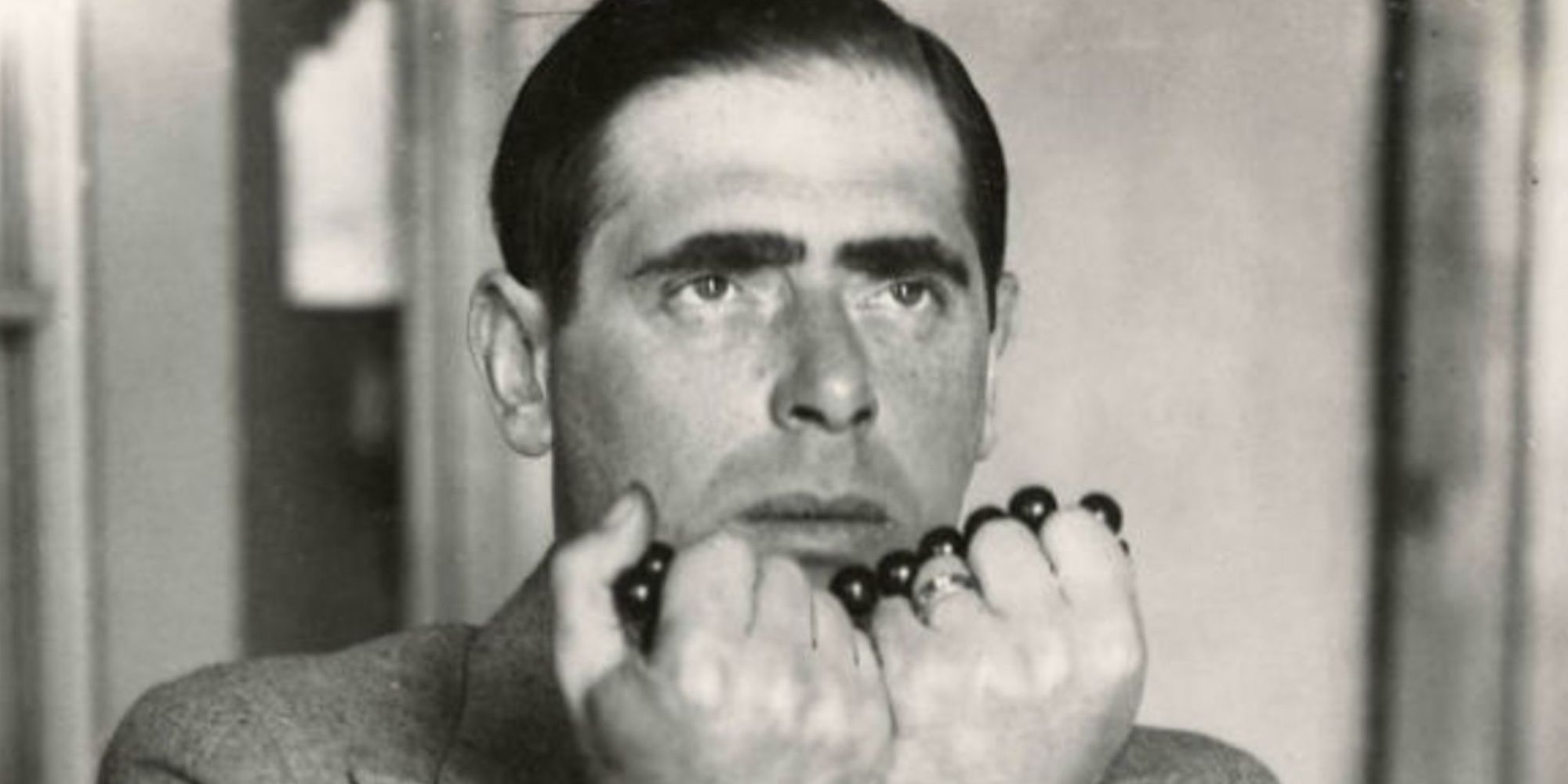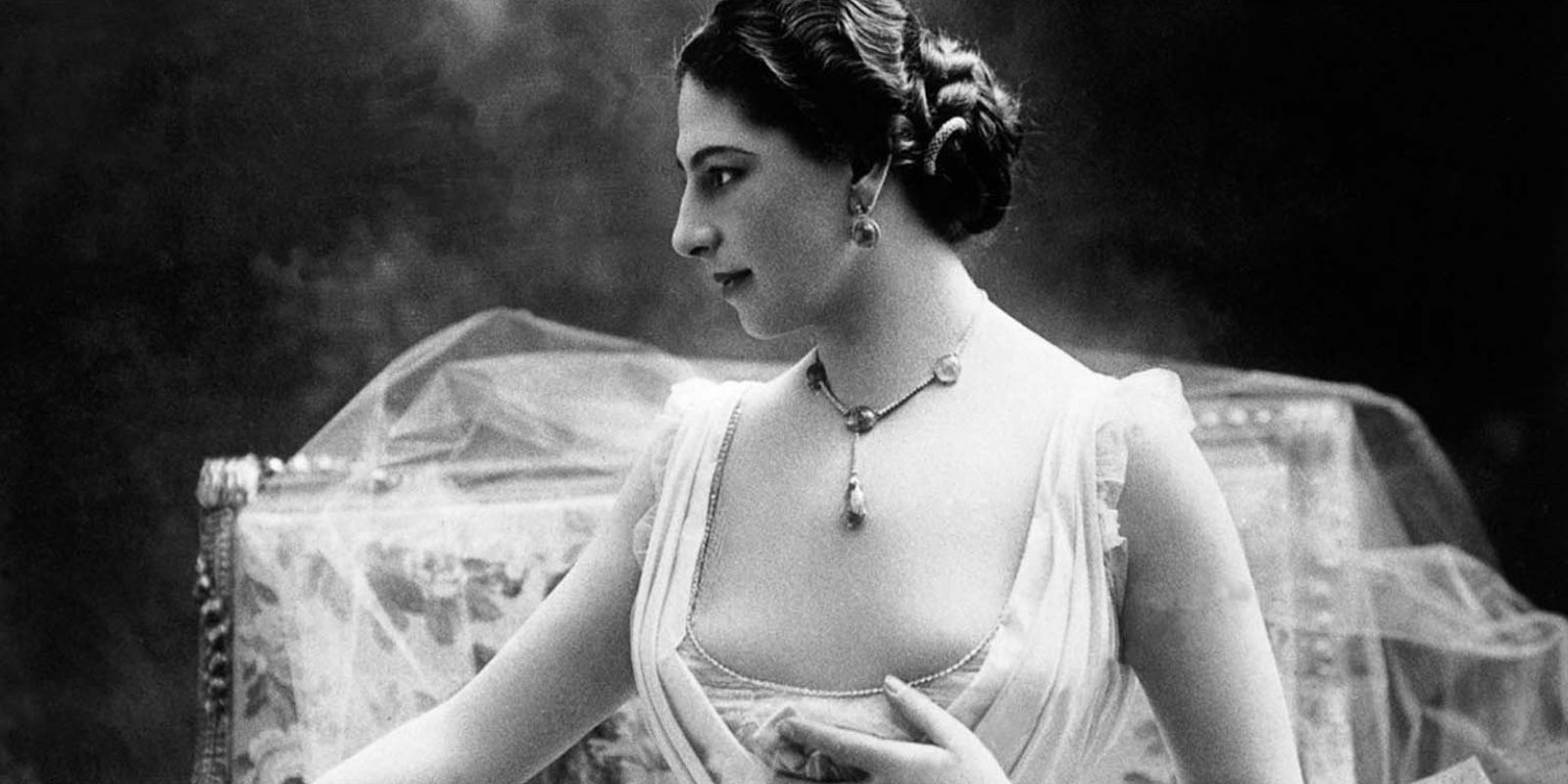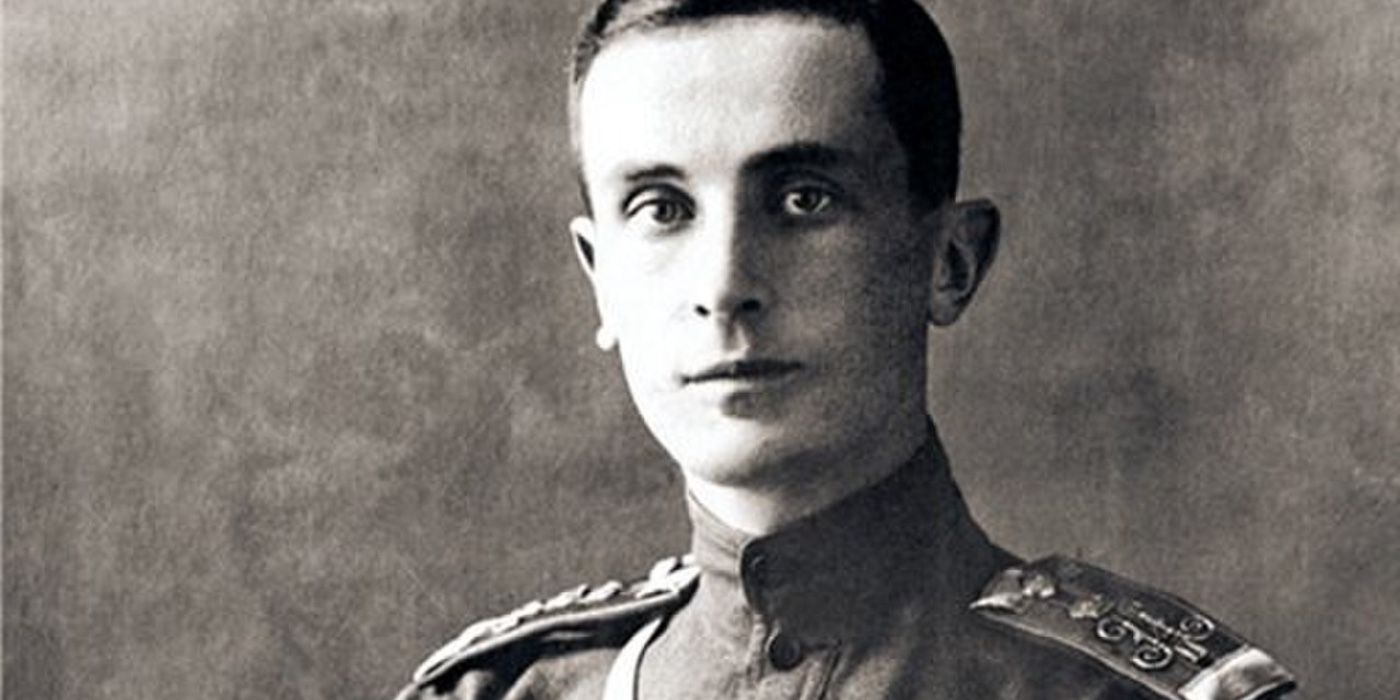Although The King's Man is a largely fictionalized action movie, Matthew Vaughn's wartime drama does contain several characters that were real-life spies. First released domestically on December 22nd, 2021, The King's Man draws on real-life events for much of its action-packed 131-minute runtime, with the horrors of World War I forming a poignant backdrop to the Kingsman origin story. This inspiration extends to the vast majority of The King's Man's main characters, some of which were real-life spies during the time period in which they lived.
The King's Man naturally takes wholesale creative liberties with its historic-centric narrative, instead utilizing the First World War as a means to evoke a sense of time and place. Director Matthew Vaughn's movie reimagines many of the key historical players between 1914 and 1918 as pawns in a deadly game of cat and mouse between Orlando Oxford's (Ralph Fiennes) secret service and The Shepherd's (Matthew Goode) espionage agents. This exhilarating version of events, therefore, sees prominent and controversial historical faces such as Grigori Rasputin (Rhys Ifans) and Vladimir Lenin (August Diehl) engage in covert operations as they attempt to undermine the Allied powers.
Yet despite the dramatization of these behind-the-scenes events during World War I, The King's Man does contain several characters who were real-life spies before, during, and after the conflict. Dutch courtesan Mata Hari is one such example, with the unbelievable true story of her capture as a German spy being far a far more grandiose tale than her supporting role in The King's Man. As a result, here's every character who was a real-life spy in The King's Man, and what happened to them.
Erik Jan Hanussen
While utilized as Kaiser Wilhelm's underhanded advisor and The Shepherd's puppet in The King's Man, the real Erik Jan Hanussen was a far less straightforward figure. Heralded with acclaim by many during his lifetime as a hypnotist, occultist, and astrologer, Hanussen was active in Weimar Republic Germany and also played a key role at the beginning of Nazi Germany as Adolf Hitler's public speaking coach in Munich. Hanussen's powers of clairvoyance were well known across post-World War I Germany, with Hanussen accurately predicting local elections, sporting results, and even the untimely death of a racecar driver between 1931 and 1933.
Yet the root of Hanussen's supposed psychic powers can be traced back to his Weimar governmental connections, with the occultist reportedly drip-fed pertinent information to feed his reputation for seeing the future. While Hanussen would use his apparent prescience to dissuade political opponents from taking certain actions, he also used the clandestine information he was given for personal gain, promoting his own abilities for sold-out shows across Germany. Hanussen's greatest prediction was calling the 1933 Reichstag Fire that allowed Hitler to consolidate his power as Chancellor of Germany, although this, like the rest, was information given to him beforehand. Hanussen was assassinated just two months later, with most historians agreeing his death was due to his inability to keep the Reichstag Fire a secret from Hitler or the wider German public at the time.
Gavrilo Princip
Of all The King's Man characters, Gavrilo Princip's portrayal as a career spy is perhaps the most historically accurate outside of his Shepherd affiliation. Politically aware from a young age, Princip joined a series of spy-like organizations between 1911 and 1913, fighting for the guerilla group Young Bosnia against Austrian rule in 1911 before joining an offshoot of the Serbian army in 1912. Following his dismissal from the Serbian forces, Princip joined the Serbian secret society known as the Black Hand, with the violent core of the society re-training Princip, arming him, and facilitating his re-entry into Bosnia as one of their own.
Just as portrayed in The King's Man, Princip became infamous for his assassination of Archduke Franz Ferdinand being one of the acts that kick-started World War I. After failing to hit the Archduke's carriage with a series of homemade bombs, Princip resorted to shooting both Ferdinand and his wife at close range, killing them instantly. Following the 1914 assassination, Princip was given a jail sentence of 20 years, with the teenager serving just four of these before dying of Tuberculosis in 1918.
Mata Hari
While the real Mata Hari did not seduce Woodrow Wilson as depicted in The King's Man, her story remains one of the classic espionage tales of the First World War. Margaretha Geertruida MacLeod (better known by her stage name Mata Hari) was a Dutch exotic dancer who rose to become a prominent courtesan within 20th Century Paris by the time World War I began. As a woman of Dutch heritage bearing no allegiance to either side of the conflict, Hari was able to move freely between European countries (aside from Germany), during which time she met Captain Vadim Maslov, a Russian pilot serving with the French, whom she called the love of her life.
Maslov was shot down in a dogfight in 1916 and taken to a German hospital, with Hari begging several of her high-ranking French clientele to allow her to visit him. Hari was subsequently granted leave to visit Germany by French intelligence agencies on the condition she brought back secrets from the German high command. Desperate to remain in contact with Maslov, Hari attempted to seduce one of Germany's Crown Princes and elicit substantial information for the French but reported she was unable to do so. British and French intelligence subsequently received word of a new German "master spy" code-named H-21, with the agencies later discovering H-21's description was an exact match for Hari. Although Hari protested her innocence to the last and denounced the Allied forces' flimsy evidence against her, she was convicted as a German spy in 1917 and sentenced to death a year later, cementing her status as one of the most intriguing espionage cases in World War I that is still debated today.
Prince Felix Yusupov
Prince Felix Yusupov's involvement in The King's Man is rather minimal, with Aaron Vodovoz's character contacting Oxford to warn him of Rasputin's hold over Tsar Nicholas (Tom Hollander). Yet the real Prince Yusupov did not utilize an imaginary spy agency to combat his perceived main villain Rasputin, instead forming his own coalition of agents to take down the formidable Russian mystic. A Russian aristocrat from birth, Yusupov had quickly become concerned with Rasputin's influence over the Russian royal family, with the self-proclaimed healer obtaining a singular hold over the decisions of Tsar Nicholas II.
Concerned for the longevity of the Russian aristocracy, Yusupov formed a small team of men to gather information on Rasputin and plan his assassination. After one of his agents discerned Rasputin's proclivity for sweet confectionary, Yusupov and his conspirators invited Rasputin to dinner and fed him French pastries laced with Cyanide. Despite becoming increasingly drunk, Rasputin seemed otherwise unaffected by the poisoned desserts, forcing Yusupov to shoot him in the chest before several of Yusupov's men further shot and maimed the dying mystic. Yusupov's actions against Rasputin would prove fruitless, however, with Nicholas II abdicating the Russian throne a mere three months later, just as in The King's Man, and forcing the Yusupov family into exile.





